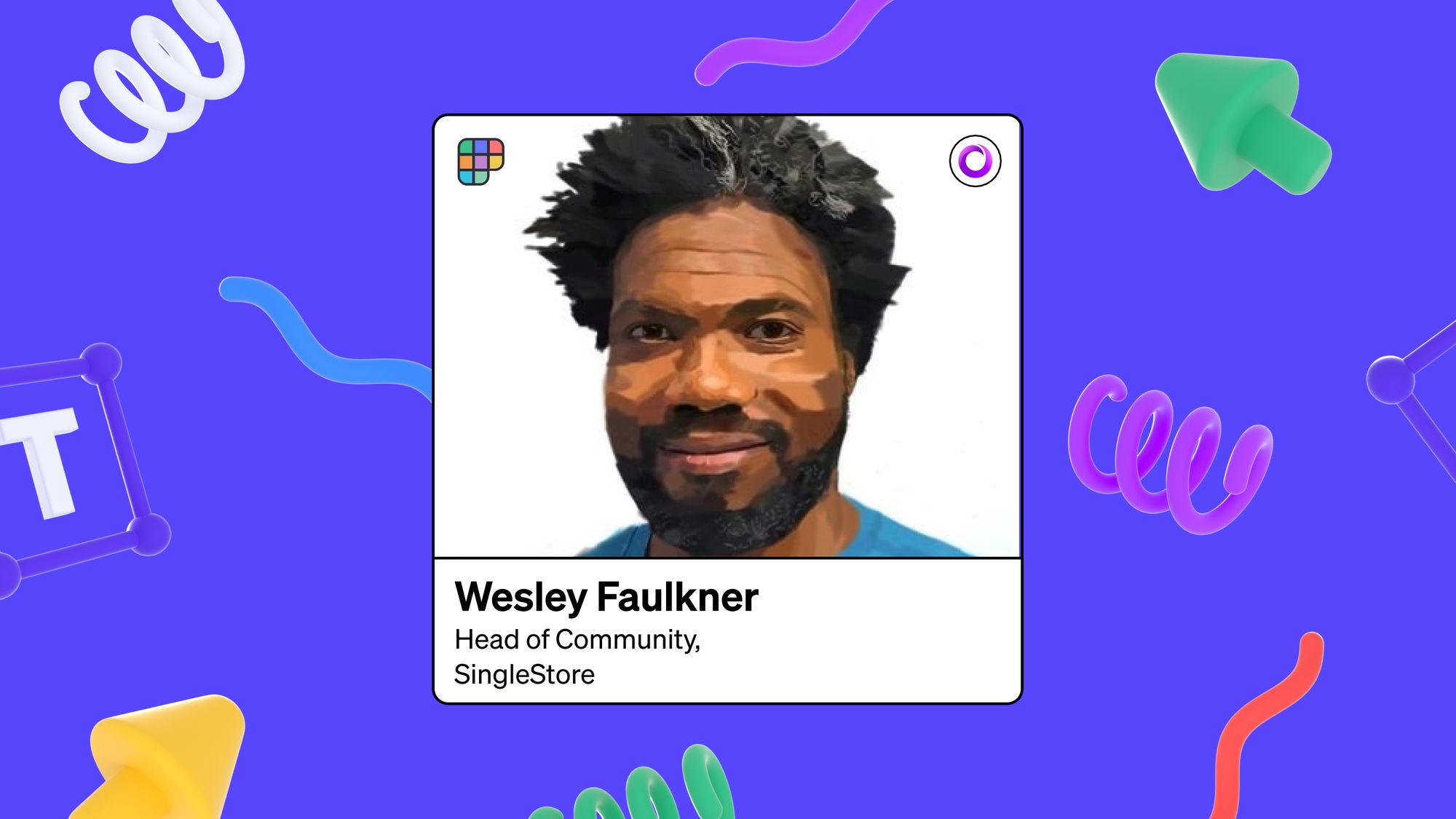Wesley Faulkner is Head of Community at SingleStore.
It’s his latest role following 20+ years of operating and leadership across product management, software and hardware implementation, and building developer relations and tech communities.
When not plugged into the industry, he’s also:
- A member of the Advisory Board of SXSW Interactive
- A co-host of Community Pulse, a monthly podcast for community managers and developer relations professionals
- A founding member of Open Austin, a government transparency group
- A first-generation American uplifting racial justice, workplace equity, and neurodiversity
We sat down with Wesley to learn about the tactical lessons he’s learned through polyworking and how Polywork has become his go-to recommendation for multi-faceted operators.
What Are You Polyworking On?
My overarching brand of expertise is developer relations.
- My official title is Head of Community, which falls under developer relations at SingleStore, a database company.
- I’m also a co-host of a podcast focused on developer relations.
- And then, I also do a lot of talks, blog posts, and other content surrounding the field.
This takes up 70–75% of my time, while the remaining 30% goes toward my advocacy work around neurodiversity plus diversity and inclusion.
What Skills Come Naturally To You?
Networking comes extremely naturally to me.
It dovetails with my love for public speaking, teaching, learning, and making interpersonal connections beyond the fluff. I love hearing people’s stories: what drives them to be better people or gives them purpose.
Then, developer relations is one of those things where you need many different skill sets and touch many facets that may not be related. Mine, in this case, definitely lend themselves to this area.
Structuring Time For His Passions
This comes out in my work with SXSW. Being there is not a work expense, though. It’s a personal expense, and I have to take vacation time to attend — because it’s personal enrichment.
It’s how I further my craft and skill in relating to folks and their concerns, plus allowing myself to step into different perspectives and vantage points. I carve out time and space for this because it is essential for me to be here in terms of personal growth.

Where Are Your Blind Spots?
I’m not great at self-promotion or asking others to collaborate. But Polywork has helped bring those opportunities to me by giving me an avenue to say, “Hey, if you want to collaborate, just use this link and see if we’re in alignment.”
I also struggle to remember events, so I can put things on Polywork to offload all of that brainpower and anxiety — so I can focus on the things I’m good at.
It’s also an easy-to-use service accessible to others, so not only do I not need to stress over remembering something, but other folks don’t even need to come to me to access that info.
Polywork has provided an outlet and created structure for me.
How Do You Advise Emerging Polyworkers?
I've had people actively reach out through the collaboration feature on Polywork. We’ve already had a couple of mentoring sessions. I advise them to start by:
- Evaluating & ranking the work they do — The things you feel required to do are much harder than those that bring you joy and life. If you choose to polywork and take on so much, take on what will fill you up, not drain you.
- Finding a community — When you’re starting from zero with anything, it’s great to gather information and understand context and history. I think a collaborative network aids in navigating that discovery.
Traits of Strong Community
I look for psychological safety, as well as being able to speak about things that are entirely unrelated to why you’re grouping. For instance:
If you’re in a knitting circle, being able to discuss your familial life is a great sign. If you’re in a DevRel group, being able to chat about your finances is also great.
Anything that fuels the flexibility of connecting in a very human, very personal way — that’s the experience that binds us the most.

